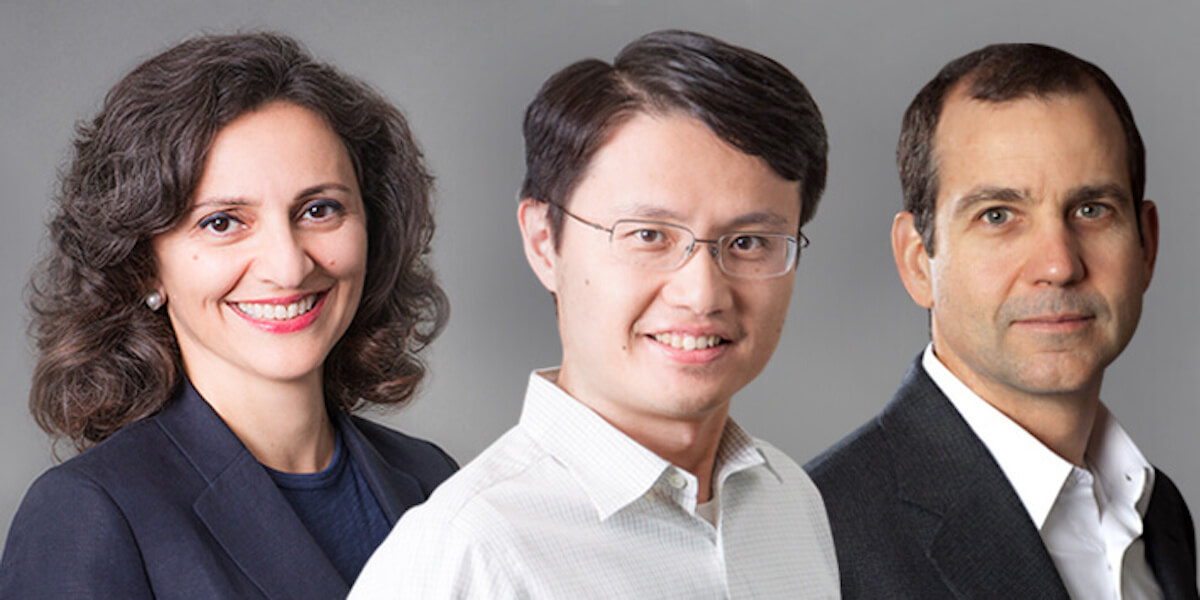
By Ben Paul
Ming Hsieh Department of Electrical and Computer Engineering Professor Mike Chen (Principal Investigator), along with Professors Mahta Moghaddam and Keith Chugg, have been awarded a 3-year, 900K grant as part of the NSF’s project to address grand challenges in wireless communication and access.
The globe is experiencing a shortage of a finite and valuable resource: radio frequencies. As demand for smartphones and wireless broadband access grows, there has been an expanded use of the radio frequency spectrum. So what does the spectrum of available radio frequencies have to do with climate change?
These frequencies are not just used for Netflix and phone calls. They facilitate the modern information systems our governments use for public safely, national defense, and more. Compounding the problem, some of these frequencies have to remain “human-free” so they can be used for environmental monitoring and solar storm forecasts.
It’s environmental monitoring, specifically, that Chen, Moghaddam, and Chugg are focusing on in their work. As global climate change continues, environmental conditions have become more and more variable but difficult to predict. This has potentially dire consequences for societies and people all over the globe. Our current instruments for monitoring the environment are expensive, complex, and operates through dedicated radio frequency bands (those same frequencies that are running out of bandwidth!). The more effectively we can measure and monitor things like precipitation, biomass, crop growth, and soil moisture on a global scale, the better our understanding of future climate changes will be.
Chen’s team aims to provide a solution by developing new equipment that is not only less expensive, but also requires no dedicated transmitters or bandwidth. “As it stands now, governments are already devoting many billions of dollars to environmental monitoring.” Chen says. “It’s so important that we significantly reduce this cost and establish more flexible techniques.” By doing so, they are addressing the grand challenge of achieving low-cost, continuous and ubiquitous global environmental monitoring – a goal that has so far been out of reach.
Although all three professors have appointments in the Electrical and Computer Engineering Department, each of them brings a diverse set of skills and experience to the project. Prior to joining USC, Dr. Chen worked on commercial Wi-Fi chips and will be focusing on circuit design, NUS-ADC (non-uniform sampling, analog-to-digital converter) theory, and chip fabrication and testing. Dr. Moghaddam joined USC almost 5 years ago from the University of Michigan and before that working as a radar engineer at JPL for 12 years. Her contributions will be in developing new remote sensing algorithms, observation system requirements, and proof-of-concept experiments. A veteran at USC, Dr. Chugg has been in the department for 20 years where he has been making contributions in digital communications and signal processing. For this project, Dr. Chugg will focus on DSP/sensing algorithms, simulation, and digital hardware architectures. “This NSF program is meant to be a multi-disciplinary collaborative effort, and I think we have certainly achieved that.” Dr. Chen said.
Recognizing that addressing the challenge of climate change is as much about education as it is about new technology, the project will integrate the research findings into K-12 outreach programs and educate students at the undergraduate and graduate level as well. “Tackling climate change is a long term effort that will require more technical breakthroughs,” Dr. Chen stresses. “It’s important to train the next generation of researchers to carry on the work we’re doing now.”
By imparting environmental values onto future engineers, and providing the tools to make those values a reality, this grant goes above and beyond the goal of more efficient global monitoring.
Published on October 13th, 2016Last updated on January 10th, 2019

